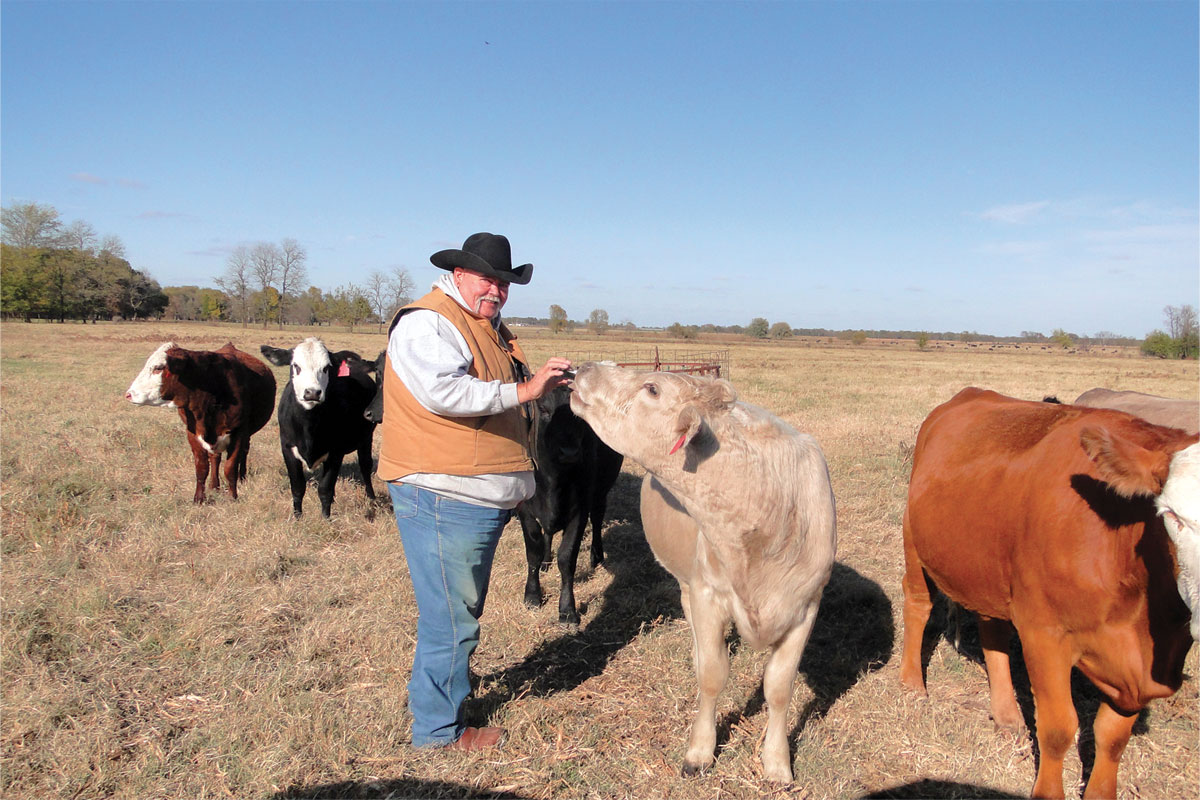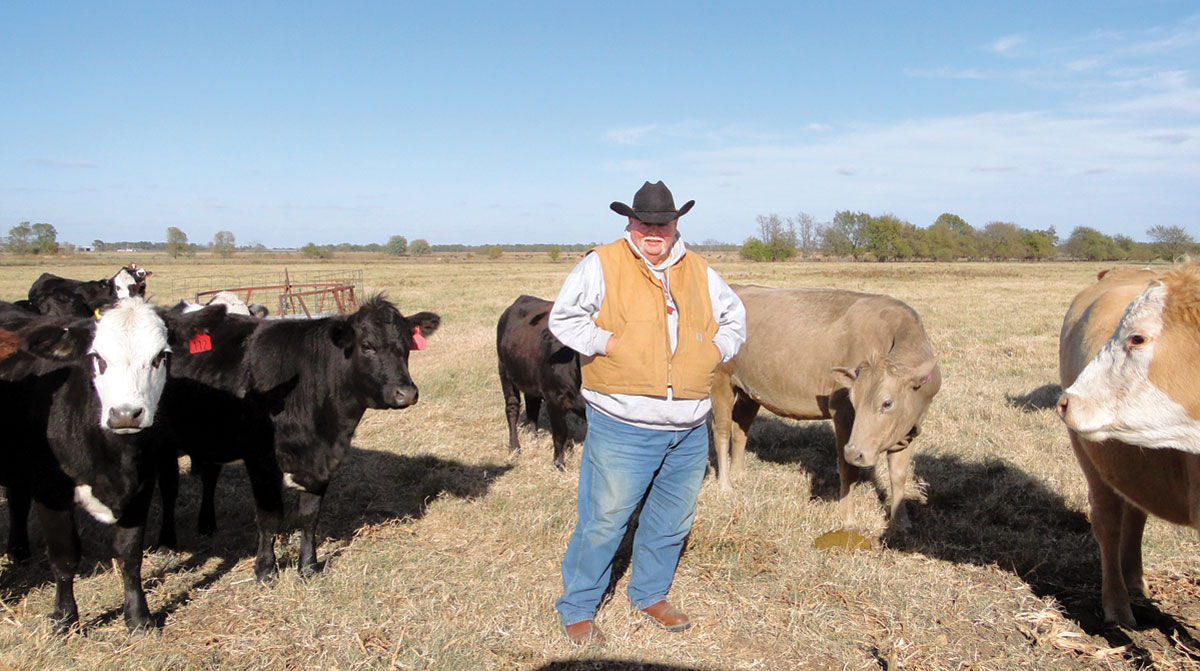
Bill Mullen had great ambitions as a youngster, including owning is own cattle ranch
By the time he was 8 years old, Bill Mullen of Maysville, Ark., had already been driving a blue, 4-speed Chevy pickup equipped with a hand throttle in “granny” for four years.
Bill drove in a semicircle while his father Willard checked cattle and pitched hay out the back. At the same age, he also knew the three things he wanted to be: a professional baseball player, a country music singer and a cattle ranch owner.
“The baseball goal ended at the American Legion in Bentonville, but the other two became the driving forces in my life,” Bill said with a laugh.
Bill is the third generation of cattlemen/musician in his family. Grandfather Phil played the fiddle and raised Hereford’s while Willard played the steel guitar, and carried on the Hereford tradition. Bill started showing Herefords calves out of his dad’s cows as a youngster and added singing to his guitar playing, though he elected to chase the market and experiment with crossbreeding rather than raising purebred Herefords. Not surprisingly, his cattle have a strong Hereford genetic component.
While father and son may have chosen different breeding patterns, both stayed staunch cattlemen and professional musicians, often performing together. According to Bill, “they were tight” and shared their lives fully, so much so that they played together in Bill’s first band, Ozark Country Boys, and his last, Bill Mullen and the Southern Pride Band. Willard played his whole life with a gig scheduled the night he passed at age 79.
The cattle business is not easy and demands thriftiness, passion, dedication and a willingness to spend years in developing a self-sustaining business. In Bill’s case, the quest began with 20 acres purchased in the 1970s with subsequent buying and selling until he was able to purchase 300 acres in Maysville on which runs a cow/calf operation with 120 momma cows. During those years and afterwards, until 2007 Bill worked a variety of jobs, including selling real estate and automobiles.
“I could never have done any of this without my wife Teresa who was my high school sweetheart,” Bill said. “She now works in the jewelry billing department for Walmart having worked for them for 30 years, driving 60 miles round-trip every day and then coming home and helping me.
“Building this ranch was a long process, and we had to save cans of nickels to get there. I didn’t have my first air-conditioned tractor until I was 60 simply because I couldn’t afford it. Still today the business is far from easy.”
Several features attracted Bill to this particular ranch. One was the terrain. The land has no rocks, no hills and no timber, something not very common in Northwest Arkansas. Another was the layout. The pastures are separated by a fenced channel that allows easy access to every pasture. Further, water from the ranch’s well was already piped to many of the pastures. In addition, the ranch contained a good corral area and outbuildings.
The first cattle Bill and Teresa raised were with Limousin and Charolais bulls. The cross produced yellow cross calves which were highly marketable at the time and are now making a strong comeback. Currently Bill has Brangus and Hereford bulls he breeds to mostly crossbred black cows though a few from the old Charolais line remain. Bill believes that one of the most critical factors in selecting bulls is finding a quality and trustworthy breeder who understands the needs and desires of each specific customer though eye appeal is the buyer’s responsibility. He buys his Brangus bulls from Jim Singleton from Maysville and his Herefords from Vernon Schmiegelow from Gravette. The bulls produce high-quality calves, which means raising his own replacement heifers makes sense for Bill. Consequently, Bill replaces his bulls often in order to keep the bloodlines clean.
Bill believes in people. Though far away, Bill sells his cattle at Joplin Regional Stockyards in Carthage, Mo., because another country singer, Dwayne Bowman from Missouri, had heard of Bill and came to look at his cattle, suggesting he might want to sell at the Diamond Sale Barn, which he did, making another friend named Fred Gates, who moved onto JRS when the Diamond sale closed.
“I told Fred it was a long way to go but I’d give it a try since they had so many buyers. I did and have done well there ever since,” Bill said.
Bill has both spring and fall calves, which he weans at 7 months when he works the entire herd following a vaccine and pour on wormer protocol. He feeds minerals to the entire herd and 16 percent grain to his replacement heifers for 120 days. Bill has a large pasture rotational system with eight pastures to support three herds: a smaller herd of first-calf heifers and his two main herds.
Pastures are 90 percent fescue and Bermuda with some clover. Sixty acres are set aside for hay and are the only acres to be fertilized with either chicken litter when available or commercial fertilizers. Rather than spraying for weeds, he brush hogs where and when needed, especially adjusting the height so he can knock off the tops of the fescue. He believes brush hogging is just hours in the saddle.
“Music fills my soul but can’t pay the bills. Music and cattle give me a good life and they are equally important,” Bill said.







